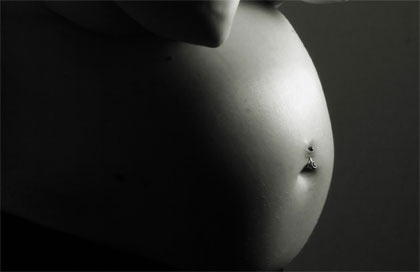10 Tips to Detect Ovulation
Why trouble to detect ovulation? Actually, there are quite a few reasons to. Once you’ve got used to being aware of ovulation, it gives you better opportunities to prevent a pregnancy that you’re not ready for (employing other contraceptive methods, naturally) or ensure a more timely pregnancy when you’re planning it. Also, if you keep tabs of your ovulation brings you a better understanding of the cycles that your body is following, thereby allowing for a closer contact with your body – you will feel when everything is fine and when things are not quite right.

Being aware of your ovulation requires knowledge of certain tricks that should better be used in combination. Here are the most reliable symptoms of the process going on.
1. Two weeks have passed since your period started
14 days and half after the beginning of the latest period is the common time for ovulation to occur. A study dated 1991 revealed that you have a 95% guarantee that your ovulation will come on sometime between the 8th and the 20th day of the period.
2. Your vaginal discharge becomes clearer and more slippery
Ovulation is generally accompanied with alterations in the discharge. The fluid that oozes out of your cervix, i.e., the opening, becomes like egg white, clear and slippery to the touch. It becomes like this to provide for an easier journey of sperm to the fallopian tubes where fresh eggs are waiting for them.
3. You run a temperature
Ovulation also causes a slight rise in the body temperature. If you set about checking your temperature every day of a cycle you will register a noticeable rise for a few days within the most probable timeframe. If you’re planning a pregnancy, the best time for it will be 2 or 3 days before the temperature goes up (information courtesy of Mayo Clinic), so your personal calendar may come in very handy.
4. Your sexuality increases during ovulation
It’s customary for a woman to feel more sex-driven a couple of days before the ovulation and during it – your hormones become more active as part of Nature’s boost of the chances to conceive when you are most fertile.
5. Others become more aware of your sex appeal
Ovulation does not only enhance your sexual hunger – it sends out vibes that attract the males of the species. Pheromones, compounds that influence hormones, make you more appealing to men around you.
6. You may have mild onsets of abdominal cramps
In some women ovulation causes cramping like during menstruations, but much milder. So if your onsets of abdominal cramps are unusually severe, it is a good reason to consult your doctor! Spotting during cramps is also irregular.
7. Your cervix gets softer during ovulation
Generally your cervix is expected to be quite hard, like the tip of the nose, and it is not very comfortable to check it. But once you start to ovulate, it feels a deal softer, and it is one of the surest ways to know you are ovulating.
8. Your cervix comes out a little
When your fertility is at its lowest, during your period or in other times, the cervix is likely to move into the vagina – which may lead to some troubles during an intercourse. But as the fertility ability grows, the cervix will come higher and you will be able to feel the difference after some observation.
9. Your cervix opens up
When the cervix opens a little, it is one of the most distinct signs of ovulation, because generally it’s not always easily detectable by feel. But as fertility grows to its highest point, the cervix opens up and becomes like lips, allowing for an easier entry so you can receive sperm.
10. Ovulation can be easily detected by a urine test
You will find ovulation test kits almost at any drugstore. The test assesses the level of luteinizing hormone in the urine, which appears before and throughout ovulation. If it shows a significant increase of the level, ovulation has started and you’re at maximum fertility.
Considering that bodies differ from one another, there’s no telling whether you will display all signs or just some of them. This kind of information may tell you more about your fertility cycle, and may send you off to a general practitioner, gynecologist, or nurse-midwife in good time should something goes wrong.
